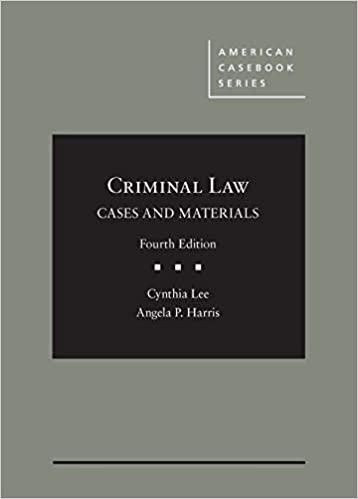Question
contract law is an area of the law that relates almost exclusively to business transactions. Goodsare bought, sold, and moved by way of contract; employees
contract law is an area of the law that relates almost exclusively to business transactions. Goodsare bought, sold, and moved by way of contract; employees are hired under contract; land andbuildings are developed, bought, sold, financed or leased under contract; business risk isreduced by the contract of insurance; and, indeed, many businesses, such as partnerships, arebased on contracts. In a sense, contracts represent the foundation of most commercial activities,and consequently, contract law represents one of the most important areas of business law. A
contract may be defined as an agreement made between two or more corporations or per-sons that the courts will enforce. Contract law differs from many other areas of the law in thatthe parties need only follow the principles set out in the law to create their own rights andduties that the courts will then enforce. In some respects, the parties create their own "law" thatthey are obliged to follow
What is favism, first and foremost? Question 2: What is the haemoglobin content of reticulocytes, and how can it be detected or tested? Question 3: We've been told that an erythrocyte sedimentation rate (ESR) of more than 100 mm/h has a limited differential diagnosis, with the most prevalent causes being vasculitis, malignancy, and granulomatous diseases. Could you perhaps explain if this is true for an ESR at one hour or two hours? Question 4: What causes such a high erythrocyte sedimentation rate (ESR)? Question 5: What causes an unusually high erythrocyte sedimentation rate (ESR)? I'm talking about a 100 mm/h ESR. Is this test effective for anything other than polymyalgia rheumatica and giant cell arteritis diagnosis? 1. Does your erythrocyte sedimentation rate (ESR) rise with age? 2. In an 80-year-old lady with no indications of systemic illness, is an ESR of 50 mm/h considered normal? 1. What does a "normal" erythrocyte sedimentation rate (ESR) entail? Is the formula for calculating a normal ESR at the age of ten correct? 2. Would a normal ESR rule out a vasculitic etiology in the case of a stroke? In what conditions is C-reactive protein (CRP) more informative than erythrocyte sedimentation rate (ESR)? Question 9: What is the therapy for a single elevated ferritin level (with no other symptoms, signs, or changes in other blood tests)? Question 10: Is the mean corpuscular volume (MCV) beneficial? What exactly is the RDW, and when does it apply?
Step by Step Solution
There are 3 Steps involved in it
Step: 1

Get Instant Access to Expert-Tailored Solutions
See step-by-step solutions with expert insights and AI powered tools for academic success
Step: 2

Step: 3

Ace Your Homework with AI
Get the answers you need in no time with our AI-driven, step-by-step assistance
Get Started


